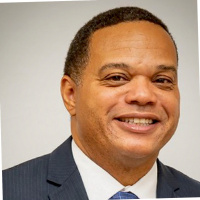Milton Criminal Lawyer, North Carolina
Todd Allen Smith
✓ VERIFIEDAs a fixture in State and Federal Courts across North Carolina since 1999, Todd Smith has dedicated his practice to helping regular people faced with ... (more)
Ralph K. Frasier
✓ VERIFIEDRalph Kennedy Frasier, Jr., is one of the founding partners with Frasier & Griffin, PLLC, a successful legal practice with a proven track record servi... (more)
Thomas F. Roupas
✓ VERIFIEDOur law firm uses a team approach that insures you receive the information and advice you need with the service and attention you deserve. Our firm ha... (more)
Lawrence Thomas McPhail
✓ VERIFIEDLawrence Thomas McPhail is a retired Troop Commander for the North Carolina State Highway Patrol, having served for twenty-eight years. He also served... (more)
Kathy Williams Richardson
✓ VERIFIEDKathy has been practicing law since 1992, and is the founder of Kathy S. Williams P.L.L.C. Born to a military U.S. family in Okinawa, Japan, she grew ... (more)
FREE CONSULTATION
CONTACT






